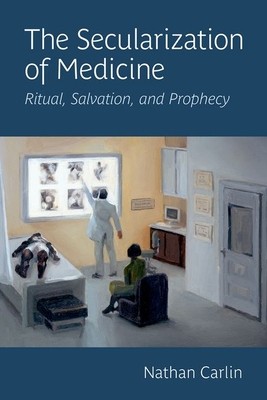
- We will send in 10–14 business days.
- Author: Nathan Carlin
- Publisher: Oxford University Press
- ISBN-10: 0197574009
- ISBN-13: 9780197574003
- Format: 14.9 x 21.7 x 2.6 cm, cietos vākos
- Language: English
- SAVE -10% with code: EXTRA
Reviews
Description
Why do doctors take the Hippocratic Oath? Is this like reciting a religious creed? Is the White Coat Ceremony a kind of medical ordination? These medical rituals do seem to offer grounding for moral life in the profession. People from all over the globe make pilgrimages to places like the Mayo Clinic and the Texas Medical Center in search of salvation--not of their souls, but of their bodies. Are cardiologists, oncologists, and other specialists the secular high priests of our time? Patients do sacrifice large sums of cash in exchange for hope.
While it is true that medicine and religion once had overt connections that have since declined, The Secularization of Medicine argues that religion as a social force in medicine has not been extinguished. Instead, religious material or ideas have migrated to non-religious or secular spaces and have been absorbed by the surrounding culture. This is a process of transposition, seen most clearly in the religious names of many hospitals and medical research institutions, continuing the tradition of Christian missions that care for the sick and see education as part of their religious duties. In this book, Nathan Carlin identifies three new types of transposition--instrumental transpositions, idealized transpositions, and imaginative transpositions--and explores them in various domains of medicine that resemble or recall religious belief or practice. He discovers that medicine is not as secular as we might imagine it to be, and this has implications for the well-being of physicians.EXTRA 10 % discount with code: EXTRA
The promotion ends in 21d.17:18:10
The discount code is valid when purchasing from 10 €. Discounts do not stack.
- Author: Nathan Carlin
- Publisher: Oxford University Press
- ISBN-10: 0197574009
- ISBN-13: 9780197574003
- Format: 14.9 x 21.7 x 2.6 cm, cietos vākos
- Language: English English
Why do doctors take the Hippocratic Oath? Is this like reciting a religious creed? Is the White Coat Ceremony a kind of medical ordination? These medical rituals do seem to offer grounding for moral life in the profession. People from all over the globe make pilgrimages to places like the Mayo Clinic and the Texas Medical Center in search of salvation--not of their souls, but of their bodies. Are cardiologists, oncologists, and other specialists the secular high priests of our time? Patients do sacrifice large sums of cash in exchange for hope.
While it is true that medicine and religion once had overt connections that have since declined, The Secularization of Medicine argues that religion as a social force in medicine has not been extinguished. Instead, religious material or ideas have migrated to non-religious or secular spaces and have been absorbed by the surrounding culture. This is a process of transposition, seen most clearly in the religious names of many hospitals and medical research institutions, continuing the tradition of Christian missions that care for the sick and see education as part of their religious duties. In this book, Nathan Carlin identifies three new types of transposition--instrumental transpositions, idealized transpositions, and imaginative transpositions--and explores them in various domains of medicine that resemble or recall religious belief or practice. He discovers that medicine is not as secular as we might imagine it to be, and this has implications for the well-being of physicians.

Reviews